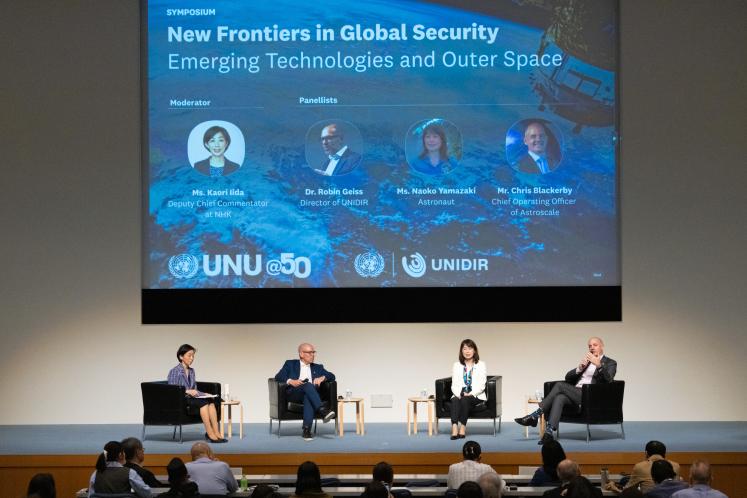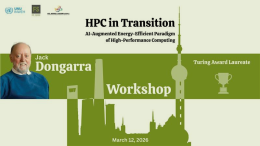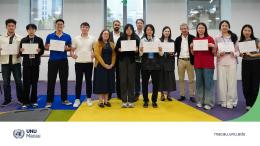On 19 May 2025, the United Nations University (UNU) and the United Nations Institute for Disarmament Research (UNIDIR) co-hosted a symposium titled "New Frontiers in Global Security: Emerging Technologies and Outer Space". Held at the U Thant International Conference Hall at UNU Headquarters in Tokyo, and supported by the Ministry of Foreign Affairs of Japan, this event brought together experts to examine the implications of rapid advancements in artificial intelligence and space technologies for global security.
The symposium opened with a pre-recorded message from Prof. Tshilidzi Marwala, Rector of UNU and United Nations Under-Secretary-General, who reflected on the dual nature of technological progress: its capacity to drive innovation and its potential to introduce new risks. Citing UNU’s work on interconnected disaster risks, he highlighted the growing relevance of space debris in disaster risk management. “Many of the pressing issues we face are interconnected”, he noted. “It is imperative that we understand both the opportunities and risks that technological advancements pose to our peace and security.”
H.E. Ms. Shorna-Kay Richards, Ambassador of Jamaica to Japan and Chair of the UNIDIR Board of Trustees, followed with opening remarks. She addressed the accelerating pace of technological change and the increasing use of emerging technologies in armed conflict. Warning that “space will become the next domain of conflict”, she called for stronger international frameworks to govern the use of AI and prevent an arms race in outer space.
The panel discussion, moderated by Ms. Kaori Iida, Deputy Chief Commentator at NHK, featured three distinguished speakers: Dr. Robin Geiss, Director of UNIDIR; Ms. Naoko Yamazaki, engineer and former JAXA astronaut; and Mr. Chris Blackerby, Chief Operating Officer of Astroscale. Together, they panelists explored the evolving security landscape shaped by emerging technologies, with a particular focus on outer space.
Dr. Geiss warned of the growing risk of both accidental and intentional collisions in orbit, noting that interference with satellites could affect the functioning of society. He stressed the need for political momentum to advance regulation, and highlighted the dual-use nature of many technologies and the rise of machine warfare, driven by AI and autonomous systems.
Ms. Yamazaki shared personal reflections from her time aboard the International Space Station, where her shuttle was struck by space debris. She emphasized the importance of space diplomacy and international cooperation, stating, “If we have a good relationship on the ground, then we can have a good relationship in space. But it can also be vice versa”.
Mr. Blackerby focused on the environmental risks of orbital debris, describing the current situation as “an environmental precipice in space”. He advocated for a “circular economy in orbit” and noted the shift from government-led to private sector-led innovation in space.
Following the panel discussion, the floor was opened to the audience for a dynamic question-and-answer session, with participants raising questions on conflict prevention, autonomous debris removal, gender inclusion in the space sector, and the risks posed by solar flares. The event served to reaffirm UNU and UNIDIR’s shared commitment to fostering inclusive, forward-looking international cooperation in the face of emerging global security challenges.






